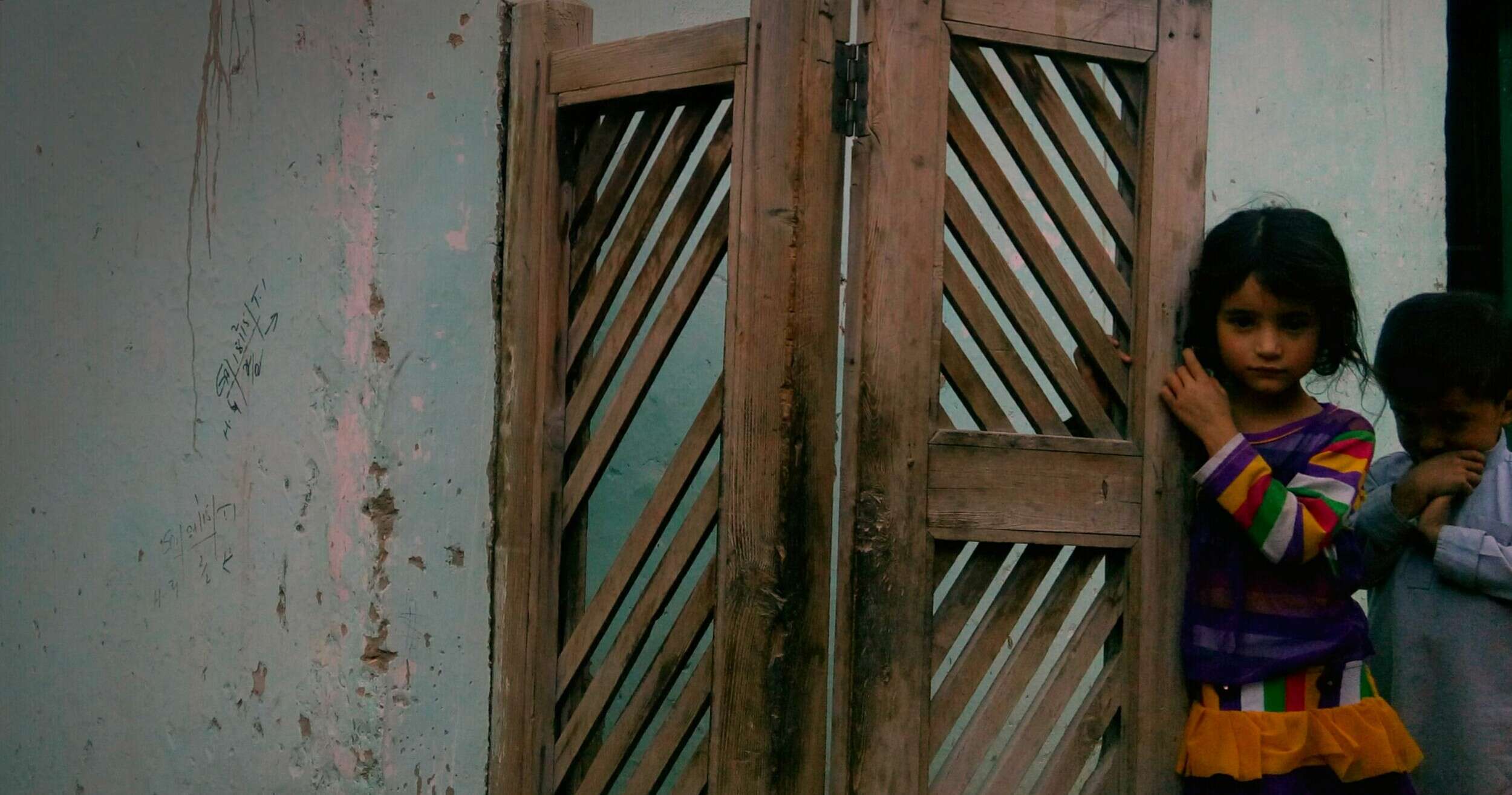Photographed by Ali Akbar Motiwala
:)
Why do the revivalist movements find more fertile ground in the Muslim world?

Professor Naveed H. Sandeelo.
For answering this important question we shall have to find out some concrete reasons which provide the revivalist movements fertile ground in the Muslim world to spread their ideas among the masses. We are commonly aware that political Islam is also known as Islamic revival and for political Islamists Islam is not limited to the religion alone but it is a complete code of life, which includes also political system and brings a change in the society. While looking at Islamic history we find that its revivalist movement’s history belongs to the remote past. In the year of 1928, Hasan-al-Banna established Muslim Brotherhood in the country of Egypt and it was so influential, systematized, and organized that it was counted as the largest Islamic group in the world. We also find that some prominent persons like Rashid Rida and Ali Abdel Raziq are also counted as some of the well-known revivalist thinkers. It is worth remembering that Islamist revivalists in every age are produced by Islam.
It is thought that the first revivalist is Al-Ghazali who strictly criticized philosophers with resulting entire death of scientific outlook and philosophical approach towards things in the Muslim world. He attempted to introduce his own ideas and this gave his writing the name of Ahya-e- Uloom-u-Din (Revival of the religious sciences). Including Al-Ghazali, there also were some other prominent revivalists who affected masses with their thoughts are included Ibn Taymiyyah, Ahmed Sirhindi, Shah Wali Allah, and Muhammad Ibn Abd-al-Wahab. After this now we come to the point with this important question that what is the main reason that Muslim lands are considered more fertile for revivalist movements to breed their agendas? And people have not been attracted by the movements of liberation and enlightenment. What are its magical peculiarity and intellectual tide which pushes Muslim minds on the seashore of revival and the past? What is the main reason they don’t attract enlightenment, liberal and scientific approaches?
Here we can see this in the glaring example of remarkable philosopher Ibn Rashid’s case whose books were banned, publicly burned, and he was excommunicated and persecuted. For his philosophical orientation, he has declared a Jew. The main reason was that his philosophical ideas were not part of orthodox Islam and he strictly adapted the Aristotelian approach towards the truth. Ibn Rashid’s significance lies in his evaluation of revelation, discursive theology, and philosophical thinking. According to Mr. Ahmed Fouad El-Ehwani, “his (Ibn Rashid’s) disgrace, persecution and exile were the results of that conflict.” We see this reality never ceased in past for the political power between orthodox and religious representatives and liberal philosophers. By his liberal thoughts and open-minded outstanding Muslim philosopher, Al-Kindi had described this dispute and thus we find in his book he is supporting philosophers and defending them from every side. According to him, the people of religious learning were so near to the masses that were impressed by them. In utter need of their support, Muslim rulers abandoned the philosophers to the anger of the common.
Another prominent thinker Nasr Hamid Abu Zaid has raised a very important question in his most famous work under the title, Reformation of Islamic thought that why was Islam reduced only to the rigidity of Sharia or law alone, while that is not focusing on its other essential aspects and dimensions? He gives the answer to this in these words that the reason behind reducing and narrowing Islam to the paralyzing Sharia (law) is that since the 5th century of the Islamic theology has been gradually marginalized philosophers and the non-orthodox theologians were persecuted or attacked by both of fiqh (legal scholars) and the political authorities.” While studying history we become aware enough that from its inception Islam had been politicized through the rise of various kinds of theological schools that were connected with power politics.
Behind the succession of these revivalist movements in the Muslim world are some thinkers’ grave efforts that grounded its ideology. Ibn Taymiyyah is considered one of the most important revivalists who had strong hatred and dislikes for philosophy, theology, and mysticism. He is thought of as a forerunner of Wahabism, Sanusim, and staunch conservative. He in his Minhaj and in other writings declares philosophy and theology of no use or place in Islam. Even towering scholars like Al-Ghazali openly raised voices against philosophy and declared the philosophers as infidel. This should be remembered that Abd al-Wahab was the product of Ibn Taymiyyah. He was a Hambalite and was a violent opponent of mysticism and philosophy. He succeeded in his efforts and revived the spirit of Imam Hanbal in the 18th century. He entirely destroyed the beautiful constellation of philosophical ideas in Islam with violence and aggression. We see almost the same role was played by Mohammad Ibn Ali Sanusi in Algeria and he fought against western culture and thought. His Sanusi movement was conservative in outlook and revivalist in nature. Both of these movements were strongly against enlightenment and struggled to keep away it from Muslims. They endeavored to promote tradition, aggression and developed scorn for modernity in the cloak of religious reform. Even the poet of the East Allama Mohammad Iqbal could not admonish his sentiments to admire Abd al-Wahab’s sufficient popularity and his conservative ideas. Another writer of Islamic revivalism Jan A. Ali like Iqbal also giving his supporting views for this movement says, “Constituted by a large diversity of revivalist movements, Islamic revivalism is a complex and heterogeneous reality.”1 (Ali, 2012)
In this part of the globe which is separately called the Muslim world, we see an entirely different kind of situation where religious thinkers in the guise of Islamic revival were preaching the masses to re-associate themselves with the remote past and incessantly advising them to find refuge in the traditional way of life in order to protect themselves from any kind of inventions, knowledge, and philosophy of the west. Through this attitude, it was clearly seen the worst decline of the entire Muslim world that it began losing its wealth, vigor, and military power. They were not in a position to face the expanding progress of the well-equipped west. After the failure of socialism in the USRR world has again become uni-polarization. Lack of enlightenment, absence of rationality, dearth of scientific approach and critical thinking, increasing of illiteracy ratio at a high margin, poverty of genuine philosophy and scorn with modernity all these factors have always succeeded the revivalist movements in the Muslim world. By the emergence of post-modernism, which introduced new globalization phenomena and market-oriented society, empowered extremism; and the political power in these Muslim regions, being least democratic, came to the hands of dictatorial governments.
Remarkable Pakistani philosopher C. A. Qadir declares Muslims themselves were peculiarly responsible for their decadence. The main reason was their intellectual, moral, and spiritual bankruptcy. The insufficiency of Muslim rulers and colossal ignorance of the masses abetted and helped the imperialistic nations. While looking at history we find that for a long time Muslims were in the vanguard position and they progressed in every field of science and philosophy and led the civilized world in culture. But later on due to disorientation in scientific knowledge and lack of interest in free-thinking of the inquiring method they ceased to exist as a dynamic force. It is regrettable as well as surprising to note that we don’t find any single scientist from the beginning of the 18th century to the middle of the 19th century but we find only condemnation of modern science and rational knowledge. While glorifying the achievements of the past they had kept aside the modern tools of inquiry and analytical methods of western academia. This was the main reason Muslims remained aloof from science, technology, and modernity. Hence they lacked the capacity to cope with the demands of modern life and scientific world outlook. They only consoled their wounded souls in the myths, vain desires, and dreams at an extreme level, just fabricated the false consciousness for vain hope and could not progress furthermore in the exigency, thus they left their masses in the lurch. This happens so with any nation that clings to the past while leading itself to mental morbidity, doom, and destruction. The same case is there with Muslim revivalists, they made themselves entirely barren. For Mr. Bob Olivier “The Muslim world consequently stagnated for hundreds of years while the nations of Western Europe were experiencing the Enlightenment, the reformation, and the Industrial Revolution.”2 (Olivier, 2020)
In the light of the above discussion, we may summarize the underlying motives of the revivalist movements in the world of Islam which became the main cause of making their closed society. These areas:
- They had utter fear of disintegration and dispersion.
- There was lack of confidence and courage among them to face the new challenges of modern science and technology.
- While clinging to the long exploded myths and dreams they lost the vigor and became victim of intellectual laziness.
- Instead of developing futuristic vision to vivify their institutions they were lurching behind the past.
- They had this false idea that reverting back to past will inevitably restore their glorious past and lost grandeur in the world.
- While neglecting scientific thought and enlightenment they made erroneous connection of power with religion, ethics and values.
- Instead of modern democratic system the Muslim regimes were mostly groaning under the clutches of dictatorial power.
The current Arab spring and the brutal resistance of Arab tyrants is a live example. Their rulers are not loyal to the interest of the masses. For their vested interests, they have enslaved their own innocent people and kept them deprived of any kind of edifying modern intellectual treasures to enrich their minds. This looks entirely treacherous mentality act and nonserious attitude of the Muslim ruling elite that deliberately keep them far from enlightenment, modernism, education, and some related academics and ideas of modernity. Therefore, the present fiasco and ignominious future of the Muslim world in every field and its disastrous and dismal condition, and devastating scenario are not the causes of modernization of the west rather it is their own responsibility not to take interest in them. Even democratic and moderate outlook has been ever discouraged. We find its result in the worst form of reactionary movements which are strictly practicing methodologies of brutality as of those against which they are perennially struggling.
Bibliography
Ali, J. A. (2012). Islamic Revivalism Encounters the Modern World. Sterling Publishers Private Limited, New Delhi.
Lack of Enlightenment in the Muslim world: An Analysis.
Olivier, B. (2020). Islamic revivalism and Politics in Malaysia. Palgrave Macmillan.
Peeping in Bright future
Focus shifted.
Aijaz Ali Mangi.
Engineer, traveler, and writer.
The chances of dying from COVID-19 are far greater than dying from the bullet. The world is changing at a faster pace than expected. The invention of the press machine was a leap in human history, which transformed civilizations and human history. Post 9/11 world also witnessed rapid changes in geopolitics, but this pandemic has far more penetrating effects. From lifestyles to thinking patterns, everything is being affected. This is a bigger challenge for humans than any amorphous war on terror.
Though exist of America from Afghanistan was not much honorable, it has drawn much criticism from different sections of the world, but it is deemed as a wise decision by many as well. The methods to dominate the geopolitics are changed, countries do not need military existence on other country’s soil. This is not the age of expanding the colonies, this is a different world, where Hi-tech information gathering methods and warfare tactics are needed and America already has invented, Facebook, Twitter, Whatsapp, etc. After spending out trillions of dollars in Afghanistan, this was a no-win- war and it was draining out much of American energy to fight the pandemic. The number of deaths resulting from the attack on the twin towers is far lower than deaths from the pandemic. America thinks that the health of its citizens is more important than winning the no-winning wars.
Taliban has fully established their rule, the last bastion of the resistance in Panjsher is gone, they have announced their government. This is now the beginning of the game. The world is watching them carefully, how they are transforming themselves from fighting group to ruling party. Once Obama said, that the election campaign is like reciting poems,s and being in presidential office is like writing prose. This fits on the Taliban also, if we replace elections with fighting. Fighting can be easy than managing a war-ravaged country. The impending challenge knocking at their door is to maintain the unity among the ranks and files. The ideological differences were buried during the war, but they are bound to resurface when in power. With no absolute authority over anyone, this is more challenging.
Turkish President Recep Tayyip reacted to the formation of the new cabinet in Afghanistan.“We don’t know how long this interim cabinet will last. All we have to do is to follow this process carefully,” he told reporters during an official visit to the Democratic Republic of the Congo.
Uncertainty engulfs and apprehensions are enhancing with the new setup. The new taker setup includes no woman, no person from outer circles. This dispels the impression of an inclusive government for now. Economic stability seems to be a dream in near future.
America made their choice of exit, they have planning to spend more on research, development, healthcare rather than on aimless wars. Taliban are in power, yet to prove, they can deliver. One country has a history of inventions, noble prizes, mars missions, high-tech enterprises. Other is war rotten, crumbling, and is on the verge of humanitarian crisis. Bagram airbase is deserted by Americans and is now controlled by the Taliban. How airbases and airports will become functional, how the banks will print the fresh money notes, how the life of common people will be improved. The road is muddy and the destination is too away.
Focus is shifted. America is preparing to combat new viruses and conquering space. Afghanistan is fighting to avoid state collapse.
POWER MEANS SOBERNESS
Ali Akbar Motiwala. Artist
The Role of Pakistani Government in Assisting Afghan Refugees
Nuzrat.
Hosting 1,435,445 registered Afghan refugees, Pakistan is the third-largest refugee-hosting country in the world. According to practitioners, about 1 million unregistered Afghan refugees are resid in urban and rural areas of Pakistan. In the beginning, the government of Pakistan warmly received the refugees and allowed them to work, gave them the opportunity of employment and to live.
Now, again with the fall of Afghanistan to the Taliban, the government will see more refugee movements towards Pakistan. The refugees who entered Pakistan in the past decades are blamed for an increase in terrorism and crime rate in the country. Therefore, the new refugees will now receive a cold welcome. At that time initially, Pakistan got international support by financing and supply of food for refugees but, in the mid, the International community stopped providing assistance, which created hurdles for the government of Pakistan to manage even the basic needs of the refugees.
Being a developing country and holding its huge population it is difficult for the government of Pakistan to provide basic facilities for the refugees. The unemployment rate is increasing, inflation is at its peak, and having an unstable economy the government cannot warmly welcome the new refugees.
The government hardly manages the employment, food, education, and all basic needs of native people, how it will manage the extra burden for the economy as well?
Taking into account the current situation in Afghanistan, there will be a huge flow of refugees to the neighboring countries including Pakistan. It is heard that most of the refugees entered using different routes into Pakistan illegally. It will be a big challenge for the government to provide accommodation for new refugees. In current circumstances, a crowd of refugees entering Pakistan, and this number increases day today. Most of the refugees’ are using the border at Baluchistan as an entrance into Pakistan.
The government has taken a harsh stance by stating that the new refugees must be constrained in border camps. The presence of new refugees may have negative implications for the Afghans residing in Pakistan. Moreover, it is also argued that the rise of the Taliban will increase the crime rate and terrorism within Pakistan as well. Furthermore, Pakistan has refused to further open the borders for Afghan refugees.
The international community must provide funds and support Pakistan financially to handle the existing and new Afghan refugees. The UNHCR must ensure the provision of food and livelihood for the refugees to their basic needs. Without international community support or push it is difficult for the government of Pakistan to look after the refugees fulfilling their needs. The economy and prosperity of the country will be lost but, the Afghan refugees will also face regional instability, lack of peace, and loss for a better future.
Time to Think
photographed by Saeed Lashari
Title: How far has Pakistan dealt with Covid-19?
Malik Talha.
Introduction:
The coronavirus or COVID-19 is inciting trepidation for a number of incentives. It is the latest virus, which means no one has derogation. It is extremely contagious that is it proliferate very fast. Its originality means that researchers are not absolutely sure as to how it acts since they have very little history to go on.
Pakistan Coping with COVID-19:
COVID-19 has had disastrous health and economic outcomes on developing and developed countries alike, yet some countries have fared better than others. In terms of both controlling the spread of COVID-19 and managing the pandemic’s economic consequences, Pakistan has reported better outcomes than many other emerging market countries. If we see the Pakistani response to the crisis, the beginning was a very clear-cut position taken by PM Imran Khan, that the government has to make decisions based on balancing the need to protect both lives and livelihoods. Back in the early to middle of march that was not a popular position to take because people used to argue that there is no trade-off and you should focus purely on the health aspect of the pandemic and that would also give you the best long-term economic returns. In order to formulate and more important as those who know Pakistan implementing policy has always been the biggest challenge and the decision that was taken at that point in time was that we needed a national cohesive effort.
So a platform was created. It was called National Coordinator Center (NCOC) and it was headed by the Prime Minister himself, all the provincial Chief Ministers were a part of it, several of the Federal Ministers were part of it. At the end of the march, there was a decision that to operationalize the decision making, we needed a national platform and a national command and operation center which was chaired by ministries, military components to its civilian federal agencies, provincial agencies. And they all worked round the clock essentially for four or five months and used to meet formal meetings every day over this period. We followed the testing, tracking, quarantine strategy which was the best global practice that we could find was, What had been done in South Korea?
In order to make that happen there were two different elements to it. One was creating an administrative structure that started from the NCOC and went down to the grassroots level across Pakistan. Thousands of people from both the health departments, the provincial health departments as well as the administrative side of the provincial government were involved in this. The second element was user technology, a fairly sophisticated technology got used which allowed management to do two things for this strategy: one was the ability to track the contacts of those who were tested positive and the second thing was that taking the data of indexed persons as they referred to and mapping it on to population centers. Using Geo-tagging management were able to identify hotspots. In the middle of November, we now have contact racing numbers on the national average for each index person. We are now being able to identify, contact, and test. Similarly, the lockdowns or the hotspot-based lockdowns were initially broad lockdowns then they were made more specific.
Conclusion:
In the current phase that we are going through, we call them micro SLDs ( micro smart lockdowns). So the bottom line results, starting from the middle of August to the middle of September, our positivity ratio is below 2% which had peaked at 22% in the middle of June. So they are down by the factor of ten. Our mortality numbers which had peaked at 124 daily deaths in the middle of June had been in single digits on a daily basis.
The Challenges for the new Taliban.
Aijaz Ali Mangi.
Engineer, Traveler, and writer.
Three weeks are about to pass, Taliban are struggling to legitimize their control over Afghanistan. This is an uphill task as most of the world is looking at them with dubious eyes, owing to their past regime.
Though many, including China are on the list of the countries that are showing a willingness to work with the Taliban government which is not an easy job. China’s engagement in Afghanistan will mostly depend on political stability, as the Chinese government will be cautious when providing finances to yet to be seen stable regime.
Andrew Small, the transatlantic fellow with the German Marshall Fund of the United States Asia program, said “China doesn’t do large scale aid; it will provide aid in modest terms, it will provide humanitarian assistance and it’s not going to bail out a new government,” he told to one news agency
“It might do some smaller-scale investments but those longer-term investments will depend on there being enough stability in the country and enough security in the country for these to turn into something that’s economically viable,” he further added.
The world is looking at Afghanistan through the lenses of security. Many insurgents groups still have footprints there, they are in a position to destabilize the regional as well Afghanistan security. Taliban can face bigger challenges from the groups. Already cash stripped country can swing further into crisis if peace e is destabilized. Any private or public entity will give consideration to all dimensions before doing business in Afghanistan. The Taliban regime needs to provide guarantees to the world not by words but also by their actions.
Climate change is also one of the big challenges. Droughts, flash floods, desertification are frequent. In 2018 drought displaced more afghans than a conflict in that year. According to a UN Environment Programme, WFP, and Afghan National Environmental Protection Agency study, the fight for natural resources has spurred more than 80% of the conflicts than other reasons. Taliban has recruited many fighters on more good wages than what they could have earned from distraught farming. Fighting for government and ruling the country are two different tasks, later need wisdom, patience, and compromises at a larger scale. Woes of distressed countries, where employees are denied salaries for several months, are compounded by freezing the funds by Washington. The world bank and IMF have also suspended the aid projects at the behest of Washington. This all exerts great pressure on a Taliban regime that has to deal with a war-torn country, soaring prices, shortage of cash available to citizens, and the risk of the economic crunch. This all leads to a humanitarians crisis. UN secretary-general has already warned for the impending crisis in Afghanistan with half of the population needing urgent assistance. Taliban are under pressure to act very wisely and address the international community concerns especially those belonging to human rights. If they failed to honor the commitments, this will be another tragedy with Afghanistan.
The government’s first and foremost job is to provide a sense of security to its citizens. Security to citizens in terms of life, freedom, food, and shelter is the cornerstone for any sustainable state. Though the Taliban are portraying their soft image by issuing statements to allow women to work and contribute to the country, an atmosphere of fear prevailing there will take a long time to shed. Human memory is not easy to erase with words, actions and consistency in actions will demonstrate the ability and will of to new Taliban regime to legitimize their government.
Political analysts think that the exclusion of the Taliban in 2001 from the Karzai government forming process and their non-presence in Loya Jirga was the reason that gave a strong feeling of marginalization to the Taliban and this, in turn, kept them pushing for the fight. If they would have been involved in all processes, the situation for Karzai and Ghani governments would have been different. This comes true for the Taliban as well, if they are not going for an all-inclusive government, they will be facing difficulties.
So mammoth tasks are lying ahead, to drive out the country from the economic crisis, to legitimize the government, to bring stability and topmost is to honor the Doha commitments. Otherwise, state collapse can be unavoidable. Afghanistan’s shaky economic and geopolitical situation is a compelling reason for the UN and the world community to engage with the Taliban in a constructive manner for state stability and to avoid another human tragedy.









